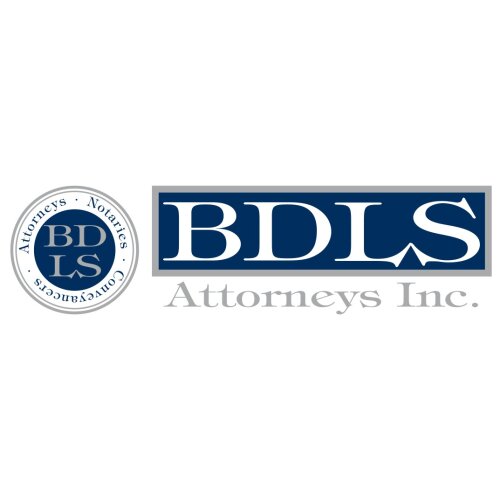Best International Trade Law Lawyers in Port Elizabeth
Share your needs with us, get contacted by law firms.
Free. Takes 2 min.
List of the best lawyers in Port Elizabeth, South Africa
South Africa International Trade Law Legal Articles
Browse our 2 legal articles about International Trade Law in South Africa written by expert lawyers.
- Managing Import Tariffs and Customs Disputes in South Africa
- Key Takeaways Managing import tariffs and resolving customs disputes in South Africa requires strict adherence to timelines and precise commodity classification. Navigating the South African Revenue Service (SARS) framework effectively protects businesses from costly delays and penalties. You have exactly 30 days to file a Notice of Objection against a... Read more →
- Repatriating Profits: South Africa Foreign Investment Laws
- Repatriating Profits: Foreign Investment Laws in South Africa South Africa offers a sophisticated legal framework for international investors, but the movement of capital across its borders is strictly governed by the South African Reserve Bank (SARB). Navigating these regulations is essential for any foreign-owned entity looking to return profits to... Read more →
About International Trade Law in Port Elizabeth, South Africa
International Trade Law in Port Elizabeth, South Africa, encompasses all legal aspects related to trade between South African entities and their counterparts in other countries. Given Port Elizabeth's strategic location with a significant port, the city plays a vital role in South Africa's import and export sectors. The legal framework governing these activities includes international agreements, national trade policies, tariffs, customs regulations, and various compliance measures that ensure smooth and consistent trade operations. Professionals dealing in this field must be well-versed in both domestic laws and international trade agreements that affect trade scenarios.
Why You May Need a Lawyer
Legal guidance may be essential when navigating the complexities of International Trade Law. Here are some situations where you might need a lawyer:
- Setting up a business that involves importing or exporting goods.
- Negotiating international sales contracts or distribution agreements.
- Understanding and complying with South African import/export regulations and customs requirements.
- Resolving trade disputes or seeking remedies for breaches of contract.
- Handling anti-dumping and countervailing duty cases.
- Adhering to international trade sanctions and embargoes.
- Navigating the complexities of trade finance like letters of credit.
- Interpreting international trade agreements and treaties.
- Guidance on trade-related intellectual property issues.
- Ensuring compliance with environmental and safety standards in international trade.
Local Laws Overview
The International Trade Law applicable in Port Elizabeth is part of South Africa's broader regulatory framework, impacting trade and customs regulations. Key aspects include:
- Customs and Excise Act: This act governs the protection of the domestic economy by applying tariffs on imported goods.
- International Trade Administration Act: Establishes the guidelines for fair trade and the protection of the local market from unfair trade practices such as dumping or subsidization.
- Exchange Control Regulations: Overseen by the South African Reserve Bank, which controls the flow of foreign currency into and out of South Africa, impacting international trade transactions.
- Trade and Industry Policy: Governmental policies that impact trade regulations, market access, and export incentives.
- Customs Duty and VAT: Importers must navigate customs duties and VAT associated with cross-border trade.
Frequently Asked Questions
What is the role of a trade lawyer?
A trade lawyer assists with legal compliance, contractual agreements, dispute resolution, and advises on international trade regulations and policies.
What are the primary documents required for importing goods into Port Elizabeth?
Commonly needed documents include a commercial invoice, packing list, bill of lading, import declaration, and associated permits or licenses.
How can trade disputes be resolved?
Trade disputes can be settled through negotiation, mediation, arbitration, or litigation, depending on the circumstances and terms of agreements.
How do I ensure compliance with export laws?
Ensure understanding of local export regulations, acquire necessary permits, comply with customs procedures, and consult a trade lawyer for detailed compliance checks.
What are antidumping duties?
Antidumping duties are tariffs imposed to protect domestic businesses from foreign companies selling goods below market value, undercutting local prices.
How do I handle import duties and VAT in South Africa?
Importers must calculate import duties based on the goods category as per the tariff schedule and pay VAT on the value of imported goods.
What is a letter of credit in international trade?
A letter of credit is a financial instrument used in international trade to guarantee that payment will be made to the exporter, issued by a bank at the request of the importer.
How can I find out about trade restrictions or sanctions affecting my business?
Consult the South African Department of Trade, Industry and Competition or hire a trade lawyer with expertise in sanctions and embargoes.
What is the importance of international trade agreements?
Such agreements define the terms of trade between participating countries, impacting tariffs, trade barriers, and access to international markets.
What are the typical challenges faced in international trade compliance?
Challenges include understanding complex regulations, adapting to changes in trade law, handling customs compliance, and managing cross-border transactions efficiently.
Additional Resources
For further assistance, consult the following resources:
- South African Department of Trade, Industry and Competition: Oversees trade policy and international trade agreements.
- International Trade Administration Commission of South Africa: Handles trade remedies such as anti-dumping and countervailing measures.
- South African Revenue Service (SARS): Manages customs regulations, import duties, and VAT processes.
- Local chambers of commerce: Provide networking and advisory services for businesses involved in international trade.
- Trade Law Journals and Publications: Stay updated on the latest developments and analyses in trade law.
Next Steps
If you need legal assistance in International Trade Law, consider the following steps:
- Identify the specific legal issue or query related to your trade activities.
- Research and compile any relevant documents or information related to your case.
- Reach out to legal professionals specializing in International Trade Law for consultation.
- Use local directories or professional associations to find recommended lawyers in Port Elizabeth.
- Consider scheduling an initial consultation to discuss your situation and understand potential legal strategies.
- Follow through on legal advice and maintain compliance with all relevant international trade regulations.
Lawzana helps you find the best lawyers and law firms in Port Elizabeth through a curated and pre-screened list of qualified legal professionals. Our platform offers rankings and detailed profiles of attorneys and law firms, allowing you to compare based on practice areas, including International Trade Law, experience, and client feedback.
Each profile includes a description of the firm's areas of practice, client reviews, team members and partners, year of establishment, spoken languages, office locations, contact information, social media presence, and any published articles or resources. Most firms on our platform speak English and are experienced in both local and international legal matters.
Get a quote from top-rated law firms in Port Elizabeth, South Africa — quickly, securely, and without unnecessary hassle.
Disclaimer:
The information provided on this page is for general informational purposes only and does not constitute legal advice. While we strive to ensure the accuracy and relevance of the content, legal information may change over time, and interpretations of the law can vary. You should always consult with a qualified legal professional for advice specific to your situation.
We disclaim all liability for actions taken or not taken based on the content of this page. If you believe any information is incorrect or outdated, please contact us, and we will review and update it where appropriate.










